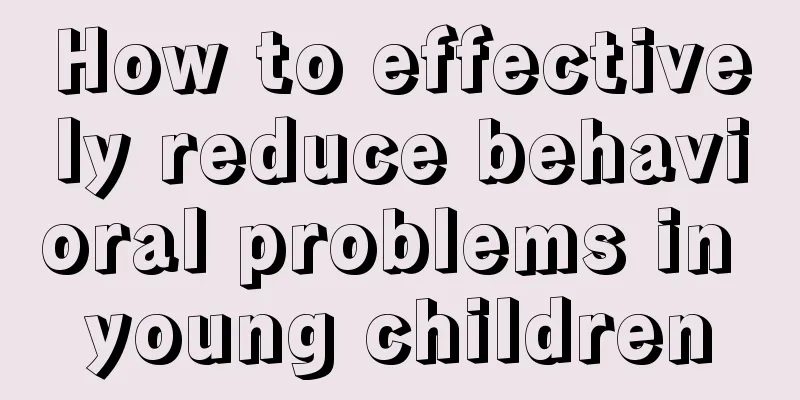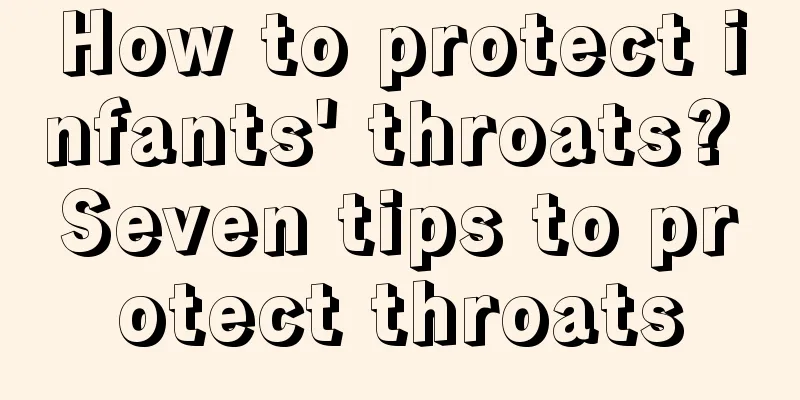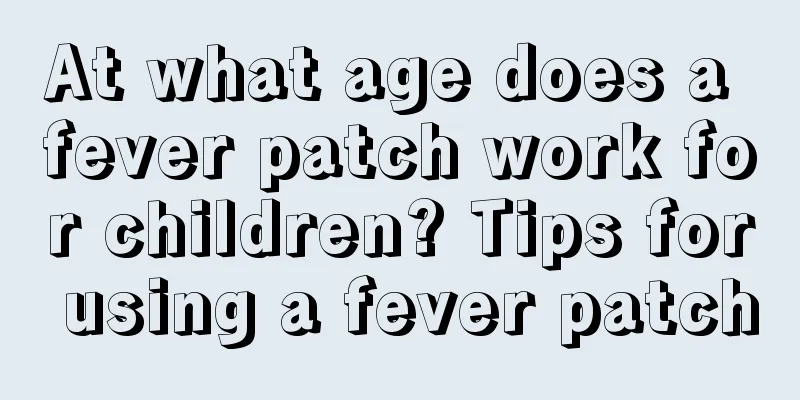How often should a newborn baby be bathed? What is the appropriate temperature for bathing a newborn baby?

|
Newborns have a high metabolism, and their bodies are prone to produce dirt and other substances, which need to be cleaned promptly. However, many parents are also afraid that their babies will catch a cold and get sick during the cleaning process. So, what should we pay attention to when bathing newborns? How often should a newborn baby be bathed?Once a day in summer and once every 2-3 days in winter. Newborns need to take a bath every day in summer, which can not only clean their skin, but also accelerate blood circulation and promote growth and development. In winter, the temperature is low, sweating is less, the skin is not easy to get dirty, and if you are not careful when taking a bath, you are easy to catch a cold, so you can reduce the number of baths appropriately, generally once every 2-3 days. When taking a bath, you need to use air conditioning, bathroom heaters, etc. to control the room temperature. For newborns with low birth weight and low vitality, or those who cannot take a bath frequently due to low room temperature, their faces and buttocks should be washed every day. Pay attention to the temperature when bathing a newbornNewborns have poor immunity, so they should keep warm when bathing to prevent colds. Remember to close doors and windows to avoid air convection. The room temperature should be controlled at 24-26℃, and the water temperature should be between 38-40℃. You can drop water on the back of your hand to feel whether it is neither cold nor hot. Pay attention to the time when bathing a newborn babyIt is best to bathe a newborn baby one hour after feeding, otherwise the baby is prone to vomiting. Bathing time is generally about 10 minutes in summer and about 5 minutes in winter; if it is too long, the newborn baby will be too tired and easily catch a cold. In addition, before the newborn's umbilical cord falls off, the baby should not be placed in water for a bath to avoid getting the umbilical cord wet and causing infection. A sponge bath should be taken, and the umbilical cord should be disinfected with alcohol. It is not advisable to bathe a newborn baby in the following situationsDo not take a bath after vaccinationAfter a baby has received a vaccination, there will be temporary needle holes on the skin that are invisible to the naked eye. Bathing at this time can easily contaminate the needle holes. Do not take a bath when you are vomiting or having diarrheaIf the baby is vomiting or having diarrhea frequently, do not bathe him temporarily; because it is inevitable to move the baby during bathing, which will aggravate the vomiting, and if you are not careful, it may cause the vomit to be accidentally inhaled and cause suffocation. It is not recommended to take a bath within 48 hours after fever or fever subsidesBathing a baby with fever can easily cause chills or even convulsions; improper bathing can sometimes close the skin pores, causing a higher body temperature, and sometimes dilate and congest the skin capillaries, resulting in insufficient blood supply to the baby's main organs. In addition, after a fever, the baby's resistance is very poor, and bathing immediately can easily cause colds and fever again, so it is recommended to bathe the baby 48 hours after the fever subsides. It is not advisable to take a bath when the skin is damagedIf your baby has skin damage, such as impetigo, furuncle, burns, trauma, etc., it is not suitable to bathe him/her because there will be wounds on the damaged parts of the skin, and bathing will spread or contaminate the wounds. Do not take a bath immediately after feedingTaking a bath right after feeding will cause more blood to flow to the epidermal blood vessels that are dilated by the hot water, while the blood supply to the abdominal cavity will be relatively reduced, which will affect the baby's digestive function. Secondly, since the baby's stomach is dilated after feeding, taking a bath right after feeding can easily cause vomiting. Therefore, it is usually best to take a bath 1-2 hours after feeding. Low birth weight babies should be bathed carefullyLow birth weight babies usually refer to babies with a birth weight of less than 2500 grams. Most of these babies are premature babies. Due to their immature development, low living ability, thin subcutaneous fat, and poor body temperature regulation, they are easily affected by changes in ambient temperature and have body temperature fluctuations. Therefore, it is necessary to carefully decide whether to give these special babies a bath. |
<<: At what day can a newborn baby see?
>>: How many days can a newborn baby take a bath? When can a newborn baby take a bath?
Recommend
When to use baby shaping pillow? What brand of baby shaping pillow is good?
Most mothers know that because babies are very sm...
Is there any relationship between baby spitting up and crying? Will crying cause spitting up?
Is there any relationship between baby spitting u...
Does Blue Moon laundry detergent have a shelf life? How to open the lid of Blue Moon laundry detergent?
I bought some Blue Moon laundry detergent and it ...
What medicine should pregnant women take for diarrhea? How to prevent diarrhea in pregnant women?
Pregnant women must pay more attention to their p...
Can pregnant women eat glutinous rice? Taboos for pregnant women to eat glutinous rice
We all know that pregnant women have a special ph...
Which parts of the baby are prone to dislocation? Five major parts are prone to dislocation
The baby's body is very soft, and many parent...
What to eat after childbirth when there is insufficient milk? Recommend several lactation-promoting foods
In our daily life, we often see that many mothers...
What is the difference between prenatal education and no prenatal education? Is prenatal education just listening to music?
Everyone should have heard of prenatal education ...
Does gargling with salt water work for oral ulcers? Let's debunk the online rumors
Is this effective for sore mouth? Many people hav...
How long does it take to have a second baby after a caesarean section? How long does it take to have a second baby after a caesarean section?
How long does it take for a mother who has had a ...
What is the function of a pacifier? Is the pacifier hollow?
The pacifier is indispensable in the baby's l...
Can pregnant women practice yoga? What are the benefits of pregnant women practicing yoga
Generally speaking, there are many taboos during ...
Fallopian tube blockage IVF success rate Can IVF be done if fallopian tube is blocked?
Blocked fallopian tubes can cause infertility, so...
What are the risks of IVF? What are the disadvantages of IVF when it grows up?
Although IVF can help couples who cannot conceive...
When should I start using a birthing ball? What are the functions of a birthing ball?
In order to relieve the pain of parturients, more...









